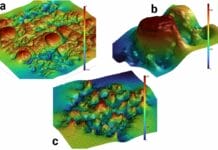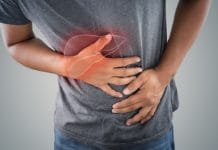Working in a rural dental office, it’s common to see extractions on the daily schedule. The few oral surgeons in our area seem to be busting at the seams. Obtaining an appointment seems to be becoming more challenging, further solidifying the volume of extractions.
While my office certainly discourages extractions when the tooth is restorable, financially, it seems to be many patients’ preferred choice. It always saddens me to see patients choose to extract teeth, no matter what the reason. Thankfully, there are replacement options when a tooth is lost, but what if I told you scientists are working on regrowing teeth?
Before we jump into the meat of this fascinating topic, let’s get to the bones of the matter. Bones and teeth are similar in that they are comprised of the same materials: calcium phosphate, hydroxyapatite, and matrix proteins.1 Both bones and teeth make up the two hardest substances of the human body, with teeth taking first place thanks to enamel.2
Miraculously, bones regrow when broken through a remodeling cycle of resorption of old bone, reversal through mononuclear cells, and formation when osteoblasts lay down new bone.3 Teeth, however, suffer permanent loss when broken or decayed to the point that the only possible answer is extraction. Even when teeth are restorable, synthetic means in the form of restorative material or crown placement must be utilized to replace damaged or broken teeth.
It’s estimated that more than 36 million Americans are completely edentulous, and 120 million are missing at least one tooth. It’s anticipated that the number of partial edentulism (one arch) will increase over the next 15 years to more than 200 million Americans.4
According to a study performed to understand the perception and awareness regarding missing teeth and their consequences, only 44.5% of participants viewed replacing their teeth as a definite need.5 However, other studies reveal that this perception is dependent upon a patient’s education level and the method by which the questions were asked.5
Despite this, it is dental professionals’ utmost duty to inform patients about the cons of extracting teeth that can be restored. Dental hygienists should also hone in on oral hygiene education to help prevent patients from decay and tooth loss.
Currently, there are several methods by which missing teeth can be replaced, such as bridges, removable prostheses, and dental implants. The American Dental Association states that nearly five million dental implants are placed annually in the United States, and this trend appears to be on target to increase in upcoming years.6,7
While dental implants are the closest simulation to natural teeth, researchers are tapping into an even more attractable replacement option: regrowing teeth.
The Potential of Regrowing Teeth
In 2021, scientists uncovered that possible tooth regrowth could be promising during research revolving around an antibody named Uterine sensitization-associated gene-1 (USAG-1).2,8 USAG-1 is a bifunctional protein that antagonizes two signaling molecules, morphogenetic protein (BMP) and Wnt, essential for human tooth development.8
USAG-1 determines the number of teeth an individual will grow. When this gene is suppressed, humans will experience supernumerary teeth. Therefore, scientists have been experimenting with these genes and proteins in mice and ferrets due to their similar dental patterns to those of humans.8
By using monoclonal antibodies, scientists are able to suppress USAG-1, thus increasing tooth development beyond what the human body is designed to produce naturally. Monoclonal antibodies are often used to treat cancer.2,8 These particular antibodies are lab-generated molecules that serve as substitute antibodies that help to restore, enhance, and modify the immune system’s attack on cells that are not wanted.9
The research conducted on mice and ferrets solidified that BMP signaling is essential for determining the number of teeth and that a single systemic administration of a monoclonal antibody can generate a whole tooth.8
Current Human Trials
Scientists in Japan began human trials in September 2024, which will run over the course of 11 months. This trial consists of 30 males between the ages of 30 and 64, missing at least one tooth.2
The drug will be administered intravenously, and if all goes well, Kitano Hospital in Japan will start trials on children between ages two and seven who have congenital anodontia and are missing at least four teeth.2 Congenital anodontia is a hereditary condition that is the complete failure of teeth to develop.10
The goal is to have the drug available on the market by 2030.2
In order for this drug to be available in the United States, the Food and Drug Administration (FDA) would have to approve its use by evaluating its efficacy and safety in humans. Established by the 1992 Prescription Drug User Fee Act, the FDA approval process has a two-tiered review system. Depending on which tier this new drug falls under, the review process may take six or 10 months.11
In Closing
As a dental hygienist, I find the idea of regrowing teeth exciting. However, considering the price tag that comes with artificial tooth replacement, I can only imagine what this drug will cost should it indicate promising results during trials.
For those who can manage the expense, it would be a fabulous second chance they otherwise wouldn’t have. Dental hygienists would need to stress the importance of oral hygiene even more, considering that initial tooth loss most likely results in neglect.
Until advancements such as these are available, it should be our goal to continue our efforts to drive home proper oral hygiene practices to prevent such tooth loss in the first place.
Before you leave, check out the Today’s RDH self-study CE courses. All courses are peer-reviewed and non-sponsored to focus solely on pure education. Click here now.
Listen to the Today’s RDH Dental Hygiene Podcast Below:
References
- Boskey, A.L. Mineralization of Bones and Teeth. Elements. 2007; 3(6): 385-391. https://doi.org/10.2113/GSELEMENTS.3.6.385
- Orf, D. (2024, June 3). Humans May Be Able to Grow New Teeth Within Just 6 Years. Popular Mechanics. https://www.popularmechanics.com/science/health/a60952102/tooth-regrowth-human-trials-japan/
- Hadjidakis, D.J., Androulakis, I.I. Bone Remodeling. Annals of the New York Academy of Sciences. 2006; 1092(1): 385-396. https://doi.org/10.1196/annals.1365.035.
- Lee, D.J., Saponaro, P.C. Management of Edentulous Patients. Dental Clinics of North America. 2019; 63(2): 249-261. https://www.sciencedirect.com/science/article/abs/pii/S0011853218300958
- Gupta, V., Singh, S., Singhal, P., et al. Perception, Awareness, and Practice About Missing Teeth, Prosthetic Options, and Knowledge about Dental Implants as a Treatment Modality in the Adult Population of Jharkhand State: A Hospital-Based Study. Journal of Pharmacy and BioAllied Sciences. 2022; 14(Suppl 1): S644-S648. https://www.ncbi.nlm.nih.gov/pmc/articles/PMC9469448/
- Dental Implants Market Size and Trends. (2023). Grand View Research. https://www.grandviewresearch.com/industry-analysis/dental-implants-market
- Boyce, R.A. Prosthodontic Principles in Dental Implantology: Adjustments in a Coronavirus Disease-19 Pandemic-Battered Economy. Dental Clinics of North America. 2021; 65(1): 135-165. https://www.ncbi.nlm.nih.gov/pmc/articles/PMC8180388/
- Murashima-Suginami, A., Kiso, H., Tokita, Y., et al. Anti-USAG-1 Therapy for Tooth Regeneration Through Enhanced BMP Signaling. Science Advances. 2021; 7(7): eabf1798. https://www.ncbi.nlm.nih.gov/pmc/articles/PMC7880588/
- Mayo Clinic Staff. (2023, September 13). Monoclonal Antibody Drugs for Cancer: How They Work. Mayo Clinic. https://www.mayoclinic.org/diseases-conditions/cancer/in-depth/monoclonal-antibody/art-20047808
- Anodontia. (2022, September 15). Cleveland Clinic. https://my.clevelandclinic.org/health/diseases/24168-anodontia
- Frequently Asked Questions About the FDA Drug Approval Process. (2017, February 7). U.S. Food and Drug Administration. https://www.fda.gov/drugs/special-features/frequently-asked-questions-about-fda-drug-approval-process











